Search
07092 Effects of Chemical Components on Resistance to Intergranular Stress Corrosion Cracking in Supermartensitic Stainless Steel
Also Purchased
07094 Understanding and Avoiding Intergranular Stress Corrosion Cracking of Welded Supermartensitic Stainless Steel
Product Number:
51300-07094-SG
ISBN:
07094 2007 CP
Publication Date:
2007
$20.00
05095 Effects of Thermal Cycle Conditions on Intergranular Stress Corrosion Cracking in Sweet Environment for Supermartensitic Stainless Steel
Product Number:
51300-05095-SG
ISBN:
05095 2005 CP
$20.00
02057 MECHANICAL PROPERTY AND CORROSION RESISTANCE OF 13 % CR MARTENSITIC STAINLESS STEELS WELDED WITH MATCHING WIRE
Product Number:
51300-02057-SG
ISBN:
02057 2002 CP
$20.00




